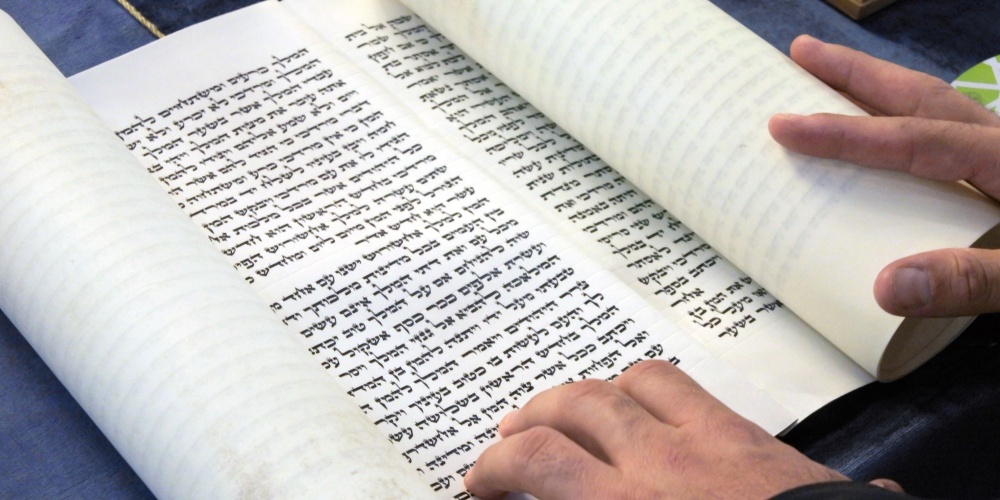
Purim celebrates the eternity of the Jewish people. Despite exile and dispersion, genocidal enemies and those willing to turn a blind eye to such, the Jewish people are here forever. When Esther sent a letter to the Sages, “kitvuni ledorot", (Megillah 7a) write me down for the generations, she was proclaiming that the story of the Megillah is the story of the Jewish people for all time. Its inclusion in the Biblical cannon, after a protracted debate no less, marks the stamp of eternity on the story, the story of survival against all odds.
Yet the secret to this survival is an inherent contradiction, one articulated by Mordechai as he pleaded with Esther to beseech Achashverosh to rescind the decree of annihilation against the Jewish people. “For if your remain silent at this time, relief and deliverance will come to the Jews from another place, but you and your father's house will perish; and mi yodeah, who knows, whether you came to royal estate for such a time as this?' (Esther 4:14)”.
Which is it? Is the deliverance of the Jewish dependent on Esther as it surely appears from Mordechai’s entreaties to the queen? Or will “relief and deliverance will come to the Jews from another place” irrespective of how we may act?
Mordechai acted as though the saving of the Jewish people was dependent on his and more importantly Esther’s actions. Public protest, crying, fasting[1] and tears, ripping of clothes knowing full well that such will get him banished from the Royal court. But Mordechai realized he had little choice - it was Esther or genocide, “and who knows if it is for this you came to the royal palace”.
This was the time for Esther to choose between her political future and her Jewish roots - and the stakes could not be higher. Yet blatantly contradicting himself Mordechai proclaims, to Esther herself no less, that if you won't act it's not really such a big deal as even if “you remain silent at this time, relief and deliverance will come to the Jews from another place”. We will be saved regardless - of that Mordechai is certain - if you Esther do not act “you and your father's house will perish”- but the Jewish people will be saved.
In this dichotomy lies the secret to Jewish survival. We must act as if there is no G-d, knowing full well that ultimately even if there is great suffering G-d will never let the Jewish people perish. The fact that “relief and deliverance will come to the Jews from another place” does not absolve one of the responsibility to act. “For me the world was created” (see Sanhedrin 37a) speaks not only the importance of each and every person but to the responsibility of each Jew to act as if the future of the world was dependent on them. “A person must view themselves the entire year as if they are half meritorious and half guilty. And so too the entire world is half meritorious and half guilty. Sin a single sin, behold one has inclined oneself and the entire world towards guilt and caused its destruction. Perform a single mitzvah behold one has inclined oneself and the entire world towards merit, causing its deliverance and salvation” (Rambam, Hilchot Teshuva[2] 3:4).
When our Sages teach “one may not rely on miracles” they are asserting the imperative of human initiative. We never quite know the extent of “relief and deliverance” - often it is partial at best. And mi yodeh, who knows, it might actually be that G-d’s deliverance is dependent on our actions - the more we do the more He does.
It is striking that Mordechai does not claim that “relief and deliverance” will come from G-d, rather it will come from “another place”. Purim marks the transition point in Jewish history from prophets to sages, overt to hidden miracles, from G-d to man taking centre stage. Even when we must rely on G-d we must constantly seek human solutions and invest human efforts.
Our Sages teach that there was a reacceptance of Torah, of the Oral Law, at Purim. Torah would no longer come directly from Sinai or through G-d’s representatives. Man would need to develop Torah by reading between the lines, through analysis, analogy, human toil and effort. There would be much debate and as the Ramban notes no scientifically provable positions. With G-d in the background “who knows” why we were put in the places we find ourselves. We may not know but we must act. Purim Sameach!
--------------------------------------------------------------------------------------------------------------------------
[1] While fasting is often associated with repentance the plain meaning of the text gives no indication of such. It was a fasting of despair much like the “great and bitter cry” (4:1).
[2] It is not by accident that we should quote from the laws of repentance on Purim. After all the day of repentance Yom Ki’purim, is a day like Purim. Apparently, it’s almost but not quite as important as Purim! (A theme we will leave for another time).



